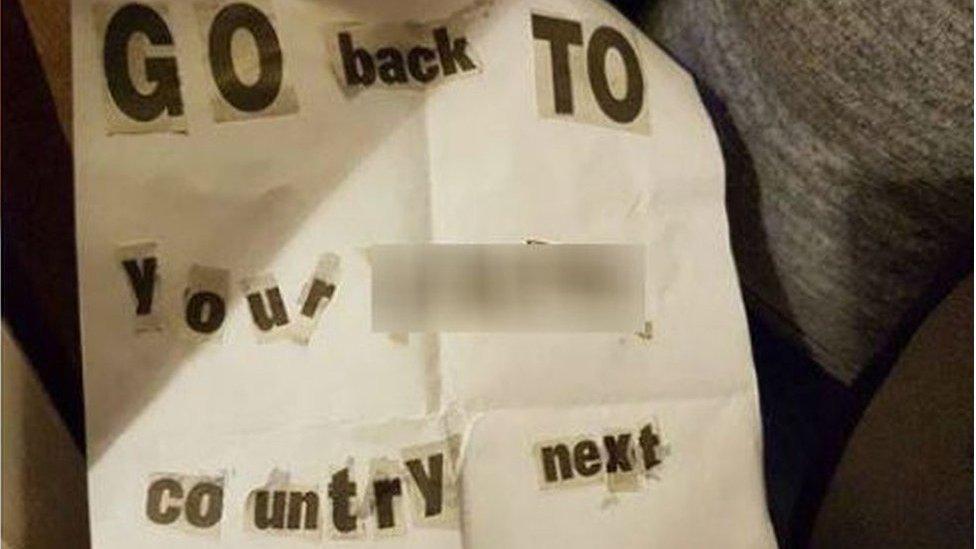'Record hate crimes' after EU referendum
- Published
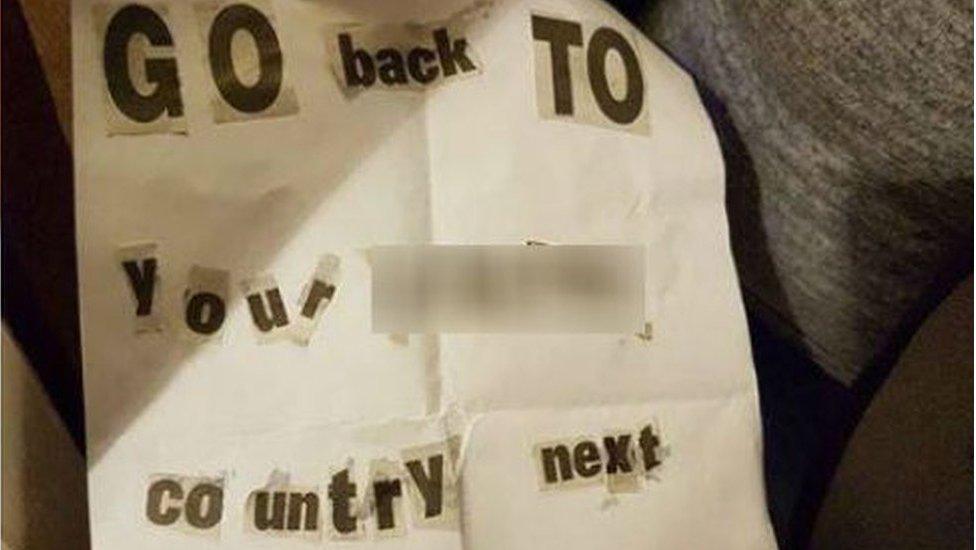
A Polish family in Plymouth received what police described as a "hate-filled" letter
A majority of police forces in England and Wales saw record levels of hate crimes in the first full three months following the EU referendum, according to new analysis.
More than 14,000 hate crimes were recorded between July and September.
In 10 forces the number of suspected hate crimes increased by more than 50%, compared to the previous three months.
Police say their own monitoring suggests incidents have levelled out after the summer's spike.
Last October the Home Office published provisional figures which suggested the number of hate crimes in July 2016 had been 41% higher than 12 months earlier.
Those 5,468 reports indicated there had been a spike in reports - supporting anecdotal evidence across the country of an increased number of threatening, violent or abusive incidents.
The fresh data compiled by the Press Association comes from official statistics which include detailed figures for five core crimes which are deemed to be racially or religiously aggravated, ranging from assaults through to criminal damage.
In the three months to September 2016, 33 of the 44 forces in England and Wales saw their highest levels of hate crimes since comparable records began in 2012.
'Robust approach'
Dorset and Nottinghamshire saw the highest percentage increases in reports - 100% and 75% respectively - compared to the levels seen between March and the end of June. That previous period had included the referendum campaign itself and the week immediately after the vote.
The Metropolitan Police in London recorded the highest number of hates crimes, with 3,356 in that period, while Greater Manchester and West Yorkshire Police recorded 1,033 and 1,013 respectively.
South Yorkshire, Gloucestershire, Surrey and City of London Police posted falls in hate crime.
Assistant Chief Constable Mark Hamilton, the National Police Chiefs' Council's lead for hate crime, said: "We know that national and global events have the potential to trigger short-terms rises in hate crime and we saw this following the EU referendum last year.
"Police forces took a robust approach to these crimes and reporting returned to previously seen levels.
"These numbers are still far too high. We have increased the central reporting and monitoring functions to enable us to recognise spikes earlier. This will be used to assess any threats that may arise and inform local police activity."

So what does this mean in the long-term?
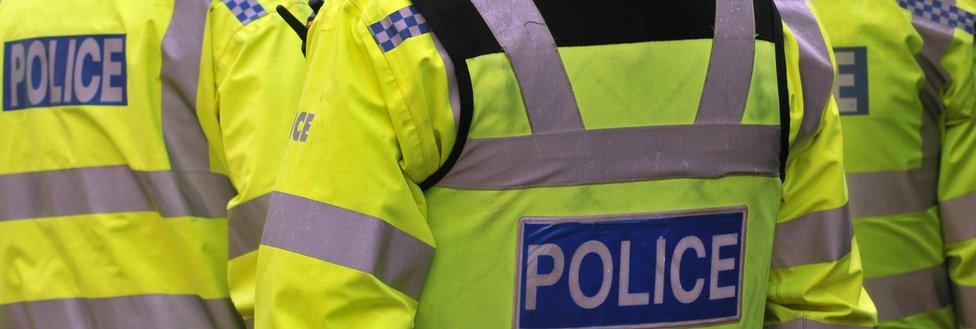
Analysis by Dominic Casciani, BBC home affairs correspondent
While the overall figure from this analysis comes to 14,300 hate crimes in three months, it can't confidently be claimed as a quarterly national record across the UK because of the complicated way that hate crimes are counted.
There's no doubt there was a spike after the Brexit vote, but the long-term picture won't become clear for months. And if 2016 turns out to be a record year, there still needs to be some caution about what the figures mean.
Sexual offences rose in recent years thanks to more people coming forward to report what had happened to them.
If there is a long-term rise in hate crime recorded by police, it may simply reflect that victims have more confidence that it is worth speaking to the police.

But David Isaac, chairman of the Equality and Human Rights Commission, warned that many people remained anxious.
"It must be sensible to prepare for any possible spikes during the Brexit process," he said.
"The triggering of Article 50 is the next major milestone and we must do all we can to discourage hate attacks and to support people who feel at risk."
Fizza Qureshi of Migrants' Rights Network, a campaign group that runs an online service encouraging people to report hate crimes , external and have them recorded on a real-time map, said: "The experience of thousands of people in the UK of discrimination, hostility and at times violence is invisible to many people in Britain - but today's figures lay it bare for all to see."
- Published10 August 2016
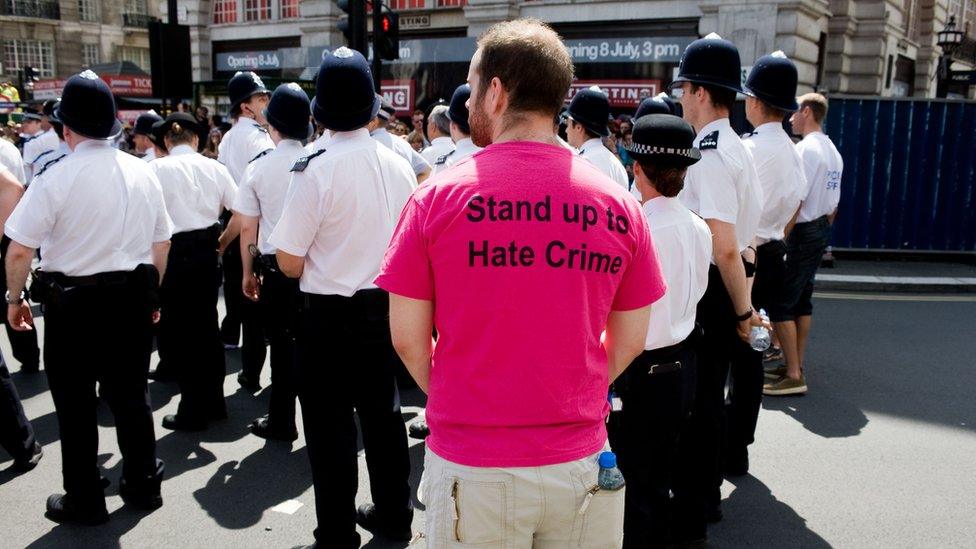
- Published13 October 2016
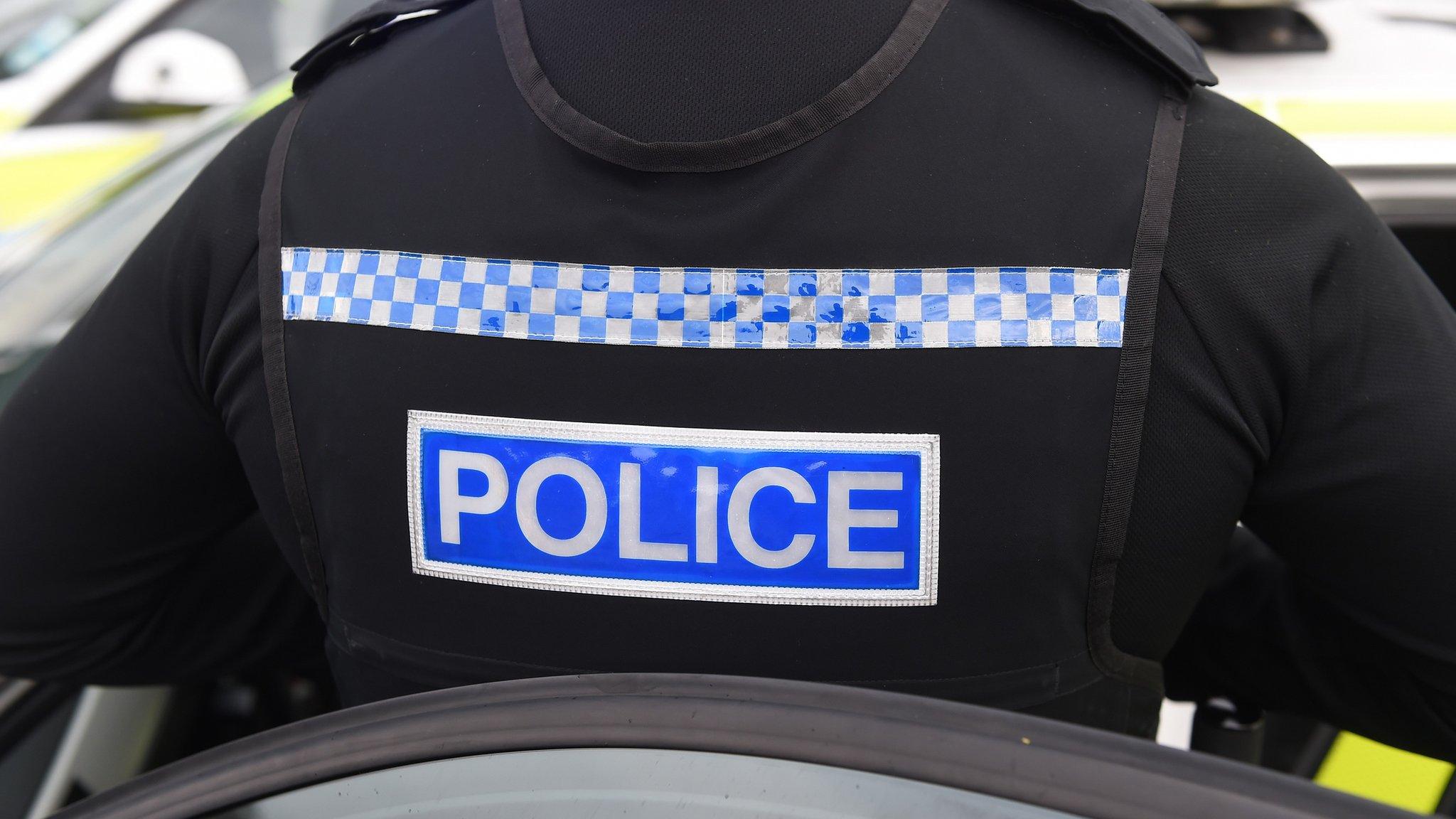
- Published22 July 2016
